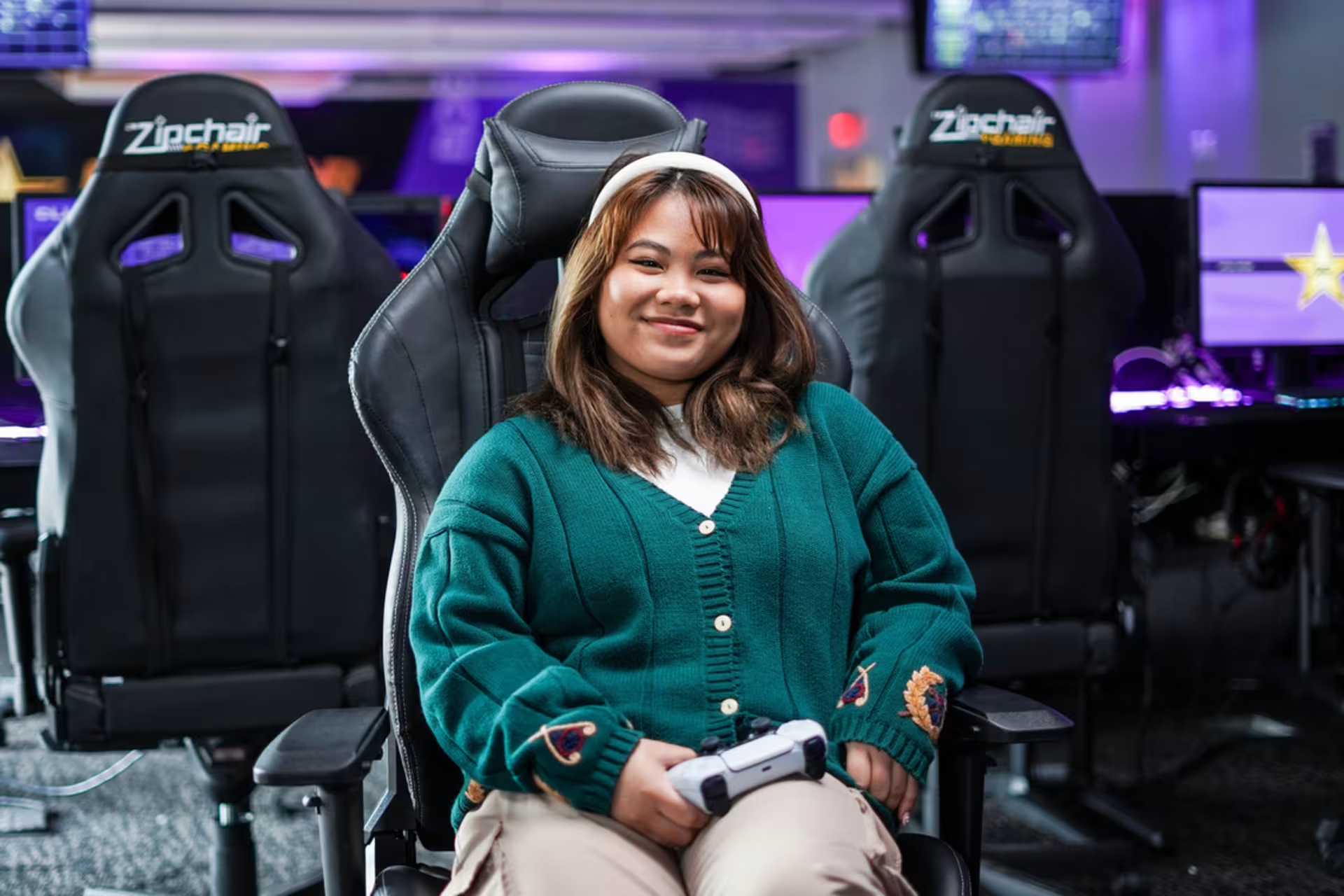


The Bachelor of Science in Game Development at Grand Canyon University is designed for those passionate about gaming and technology. This program dives deep into the technical and creative aspects of game development, covering everything from game engine architecture and AI to 2D/3D graphics, animation and software development. Beyond coding, you’ll explore game mechanics, networking and quality assurance — gaining the hands-on experience to bring games to life.
But game development isn’t just about programming — it’s also about teamwork and strategy. That’s why this degree emphasizes collaboration, project management and industry-specific business and marketing insights. Whether you dream of designing immersive worlds, developing modern software or working in interactive media, GCU’s online game development degree can help you turn your passion into a career.
Choosing our online game development degree means becoming part of a collaborative community that fosters creativity and innovation. With a curriculum covering game engine architecture, user interface design, gameplay mechanics and networking, you'll have opportunities to develop your skills alongside peers and knowledgeable faculty in an engaging, supportive environment. Our program also offers access to advanced technology and hands-on projects to support your growth in interactive media.
Earn Your Game Development Degree Online
With the flexibility of online learning, knowledgeable faculty will teach essential skills in coding, game design and graphics. This online game development bachelor’s degree offers the same comprehensive curriculum as traditional on-campus options. It requires dedication and effort to master the material and build a solid foundation for a career in the gaming or related industry.
"All these projects that we work on are specific to getting us connected professionally.(See disclaimer 1)"
"All these projects that we work on are specific to getting us connected professionally.(See disclaimer 1)"

This degree explores critical skills, such as programming and storyboarding and offers hands-on practice with 2D and 3D computer graphics. As you navigate the curriculum, you will also create a student portfolio, which you may find useful when you apply for a job.
Key topics taught in this game development bachelor’s degree include:
Game engine development
Learn the core architecture and functionality of game engines.
Artificial intelligence in gaming
Implement AI to enhance gameplay, NPC behavior and decision-making.
Multiplayer and networking
Build real-time multiplayer experiences with advanced networking techniques.
Virtual and augmented reality
Develop immersive experiences using VR and AR technologies.
Game physics and simulation
Apply physics principles to create realistic interactions and environments.
Mobile and cross-platform development
Design and optimize games for mobile and multi-platform use.
Game testing and debugging
Master quality assurance techniques to refine game performance.
Game design and production
Design, develop and launch interactive games through hands-on projects.
For those fascinated by virtual worlds and software development, this game development bachelor’s degree offers the opportunity to gain skills that can help prepare you to seek a variety of career paths and roles, such as:
Computer and information systems manager
Information security analyst
Computer and information research scientist
Computer network support specialist
Database architect
Computer programmer
Software developer
Software quality assurance analysts and testers
Web developer
Web and digital interface designer
Computer occupation
Data scientist
Median annual wage for software developers as of May 2023(See disclaimer 2)
Estimated job growth for types of software developers from 2023 to 2033(See disclaimer 3)
"By working with GCU strategic employer initiatives and internship departments, our colleges bring real companies and employers for students to make connections and find potential jobs.(See disclaimer 1) "
"By working with GCU strategic employer initiatives and internship departments, our colleges bring real companies and employers for students to make connections and find potential jobs.(See disclaimer 1) "
GCU has been institutionally accredited by the Higher Learning Commission since 1968 and is proud to prioritize quality education and comprehensive instruction. The College of Engineering and Technology shares the university’s commitment to upholding the principles and standards established by our accrediting bodies.
Explore our commonly asked questions section to learn more about our online game development degree at GCU, including curriculum and career details.
What degree is best for game development?
Is a game development degree worth it?
Does a game developer need math?

Turn your passion for gaming into a career with hands-on experience used in today’s competitive gaming industry.
Up to 90 credits, only 84 can be lower division
Credits: Fill out the Lopes Eval to find out what will transfer
Admission Requirements (Bachelor's)
OR 2.5+ Unweighted GPA and
Admission requirements may differ based on degree level, program and modality, or transfer status. Some programs of study may require a higher GPA and/or other qualifying criteria for admission. Please review full admission and program requirements in the University Policy Handbook.
*Math and reading only on a 1600 point scale (test date after 3/1/2016). SAT score of 1380 required for 2400 point scale (test date before 3/1/2016).